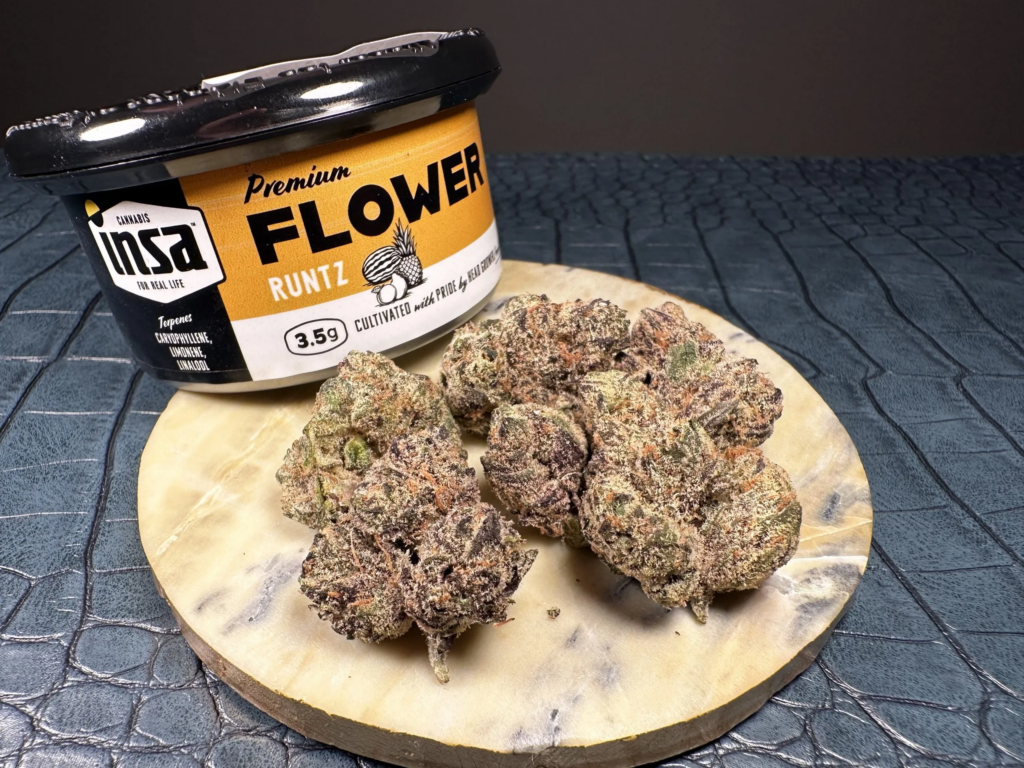
Easthampton-based Insa is cultivating one of the biggest cannabis footprints in Massachusetts, even as the industry becomes more and more competitive and saturated.
Insa opened its first store in 2018. Now, it has the maximum number of licenses and operates five dispensary sites—the most of any company, according to state data.
Per state law, marijuana businesses are limited to obtaining licenses for three recreational and three medical dispensaries.
A handful of businesses, including Insa, have also maxed out on these license types. But all of these businesses have created hybrid stores, with both medical and recreational sales on site. A hybrid store requires two licenses, so they all have fewer than five sites.
After years of fast growth, the Bay State cannabis industry is under stress. There are over 250 dispensaries in the state, leading industry leaders to voice concerns about oversaturation. Some businesses have already closed their doors.
Besides its hybrid Easthampton store, Insa has separate stores for medical and recreational in Springfield, a recreational dispensary in Salem and a medical store in Avon.
Growth potential
Insa entered the market early, and is self-funded. But Steve Reilly, co-owner of the chain, said there’s more to Insa’s success.
For one, he said, Insa is vertically integrated, so it can make money by selling its own line of edibles, flowers, tinctures, and more in its own stores, but it also wholesales out to other dispensaries.
“We continually work on that side of the business because there’s only so much product you can sell on your own store,” Reilly said.
Customer experience is also important to growing as a company, he said, whether it be the look of the store or the employees.
These decisions consummate into brand recognition, which is also crucial to the company, Reilly said. Wanting to build notoriety is one of the reasons that Insa, founded by three friends from Springfield, wanted to open sites in both western and eastern Massachusetts.
“We always wanted to maximize our footprint in Massachusetts. But we wanted to do it carefully and find good locations that would be effective stores,” Reilly said.
Insa is also putting a lot of confidence in the medical market, he said.
“The state’s prioritized it by having no tax on medical products, which I think is an important point that people should be aware of. It’s a 20% savings and they’re also eligible for other things like loyalty programs,” Reilly said. “We think that patients will recognize that.”
Although the company is now unable to open more stores in the state, at least for now, it still plans to keep growing.
Reilly said that Insa is focusing on expanding the wholesale business and looking to maximize the profitability of its current stores.
The company is also expanding into other states. Insa already has stores in Florida and Pennsylvania, but it is also moving into Ohio and Connecticut, with Hartford and New Haven stores projected to open by the end of the year.
Reilly isn’t giving up hope for expansion in Massachusetts, too. With the cannabis industry becoming more competitive, smaller operators may struggle, he said, but under current laws, businesses maxed out on licenses can’t buy them out.
Reilly said that he suspects that the state will eventually run into a similar situation as in the liquor industry, which previously capped package store licenses, and will change the regulations to lift the cap.
There’s also the potential for Insa to expand into other license types. The Cannabis Control Commission is currently building out the license for social consumption, which would allow for consumption of products on the same site they are purchased, like a coffee shop.
Reilly said that while Insa would need to see how regulations are finalized, this could be an interesting area for them to expand.
“In Easthampton, it would be an interesting concept,” he said. “We could have a vineyard-type experience there.”
H/T: www.bizjournals.com


